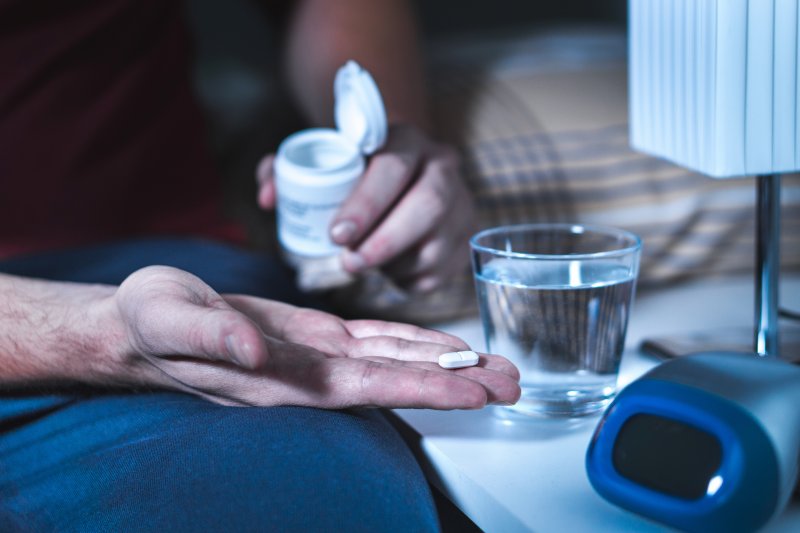
Lately it’s been difficult for you to get a good night’s sleep; you often go through the day feeling exhausted, and you’ve been suffering from frequent bouts of insomnia. You’ve been thinking of using sleeping pills or another kind of sleep aid to try and get some quality rest. Before you do, however, you should know that exhaustion and insomnia are symptoms of sleep apnea – and using sleep aids can make this disorder even worse. Read on to learn what you should avoid if you have the slightest hint of sleep apnea.
How Do Sleeping Aids Affect Sleep Apnea?
Obstructive sleep apnea is a condition where your airway frequently becomes blocked while you’re asleep, causing you to stop breathing. This causes you to wake up briefly so that your body can resume its airflow. Many common sleep aids will worsen obstructive sleep apnea; for example:
- Sleeping pills that contain benzodiazepines (which includes well-known brands like Xanax and Valium) contain muscle relaxant properties. That means they can cause the muscles and tissues in your mouth or throat to collapse and block the airway, making sleep apnea worse.
- Opioids can make you fall asleep faster and stay asleep during the night, but they can also increase the number of sleep apnea events (stoppages in breathing) that occur every night.
- Alcohol works as a sedative to help you fall asleep more quickly, but you might not sleep as deeply and could wake you up in the middle of the night – which is an issue when sleep apnea is already repeatedly waking you up in the first place. Also, alcohol is similar to sleeping pills in that it could cause the tissues in your throat to relax and collapse.
If you believe you’re suffering from any kind of sleep disorder, you should rule out sleep apnea before trying any sort of sleep aid.
How Do I Know If I Have Sleep Apnea?
Common signs of sleep apnea include loud snoring, waking up gasping for air, constant drowsiness, waking up with a very dry throat, forgetfulness, insomnia, morning headaches, and mood swings. If you’re not sure whether your symptoms point towards a sleep disorder, you should speak to a sleep dentist. Some practitioners will have an online sleep quiz to see if they recommend a consultation. You’ll likely need to undergo a sleep study at home or at a sleep lab before a proper diagnosis can be made.
Once sleep apnea has been identified, your sleep dentist can prescribe oral appliance therapy or another appropriate form of treatment. Don’t take any unnecessary risks when it comes to your sleep; leave it to an expert to figure out a solution that will let you start enjoying restful nights again!
About the Author
Dr. Mitch Conditt was diagnosed with obstructive sleep apnea in 2009 and learned firsthand how effective a custom oral appliance could be in treating it. Since then, he has specialized in sleep dentistry so that he can bring patients the same relief that he was able to enjoy. To schedule an appointment at Fort Worth Snoring & Sleep Center, visit his website or call (817) 527-8500.
